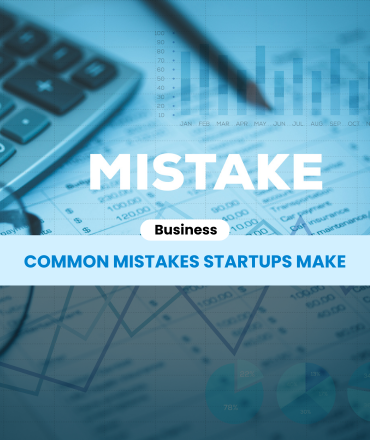
Common Mistakes Startups Make – When I first started out in business, I thought passion and hustle were enough. I believed if I worked harder than everyone else, success would just come. I quickly learned that starting a company isn’t about how much energy you throw at it—it’s about making the right moves and avoiding the wrong ones.
I’ve made mistakes. Some cost me time, some cost me money, and some nearly cost me the business itself. Here are the most Common Mistakes Startups Make—many of which I’ve lived through—and how you can avoid them.
Common Mistakes Startups Make
1. Skipping Market Research
When I launched one of my early ventures, I assumed people would line up for my service because I thought it was great. I spent months building, only to discover there wasn’t much demand. Common Mistakes Startups Make, Painful lesson: what excites you may not excite the market.
How to Avoid It: Don’t guess. Ask. Do surveys, test with small ads, or put out a simple version of your product to gauge interest. Common Mistakes Startups Make, It’s much cheaper to learn early that no one wants what you’re selling than to spend months building something that doesn’t move.
2. Trying to Do Everything Alone
At first, I was my own accountant, marketer, web designer, and customer service rep. I worked 16-hour days, burning myself out while doing mediocre work in areas I had no business touching, Common Mistakes Startups Make.
How to Avoid It: Focus on your strengths and let others handle the rest. Hiring a freelancer or finding a partner who complements your skills can make a huge difference. Common Mistakes Startups Make, The best money I ever spent early on was outsourcing tasks that drained my time but didn’t grow the business.
3. Poor Financial Management
I’ll be honest: I’ve wasted money on things that looked impressive but didn’t matter. Fancy offices, flashy branding, even tools I never used. Common Mistakes Startups Make, it’s tempting to look successful before you are successful.
How to Avoid It: Stay lean. Track every dollar and ask yourself: Will this expense directly help me grow revenue? If not, wait. Cash flow is the lifeline of your business. Once it’s gone, even a good idea can die.
4. Ignoring Online Reputation
I once had a negative article show up when someone Googled my name. Even though it wasn’t an accurate picture of who I was, it scared off potential clients. Common Mistakes Startups Make, that was the day I realized your online reputation is sometimes more powerful than your resume.
How to Avoid It: Be proactive. Collect positive reviews, put out consistent content, and address negativity before it spirals. If people don’t trust you online, they won’t trust you with their money.
5. Not Listening to Customers
Early on, I was so in love with my product idea that I ignored what customers were telling me. I thought I knew better. Big mistake. The market doesn’t care about your ego—it cares about whether you solve a problem.
How to Avoid It: Listen. Adapt. Some of the best improvements I’ve made came directly from client feedback. Staying flexible can be the difference between fading away and building something lasting.
6. Scaling Too Fast
There was a time I rushed to hire people and expand before I had a strong foundation. I thought rapid growth was a sign of success. Instead, it drained resources, caused chaos, and nearly forced me to shut down.
How to Avoid It: Build slowly and smart. Strengthen your systems, cash flow, and team before you scale. Growth is only good if it’s sustainable.
Final Thoughts
Every startup journey comes with mistakes. The question is whether you let those mistakes bury you—or teach you. Looking back, the hardest lessons shaped me into a better entrepreneur.
If you take anything away from my story, let it be this: do your research, manage your money, protect your reputation, and keep listening to the people you serve. The mistakes are avoidable. The success is waiting.
Frequently Asked Questions
Who is Omar Solari?
Omar Solari is an entrepreneur, wellness advocate, and proud father who focuses on promoting healthy living, smart investing, and building meaningful businesses.
Is Omar C Solari the same as Omar Solari?
Yes, Omar C Solari is another way of referring to Omar Solari. He is also known as Jorge Antonio Omar Solari in some contexts.
Where is Omar Solari based?
Omar Solari lives in Florida, USA. He often shares insights on wellness, business, investing and lifestyle inspired by both his Peruvian roots and American journey.
What is Omar Solari’s net worth?
Omar Solari’s exact net worth is not publicly disclosed. However, his focus is on creating long-term value through entrepreneurship, health, and investing rather than just financial numbers.
What is Omar Solari’s connection to Medicare?
Omar Solari supports awareness around wellness, healthcare, and healthier living. Any references online linking his name with Medicare are unrelated to the values and content he promotes here, which are focused on positivity, lifestyle, and growth.

Tell me about it